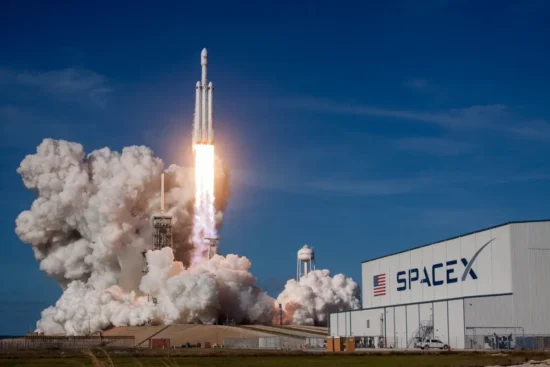Table of Contents
Billionaire Elon Musk’s space venture, SpaceX, has taken legal action against a California regulatory body, accusing it of using political bias to hinder the company’s efforts to increase rocket launches from a key air base. Filed in federal court in Los Angeles, the lawsuit targets the California Coastal Commission, which recently restricted SpaceX’s Falcon 9 rocket launches at Vandenberg Space Force Base in Santa Barbara County.
Political Bias at the Heart of the Dispute, SpaceX Says
SpaceX claims that the commission, responsible for overseeing land and water use along California’s coastline, has overstepped its authority. According to the lawsuit, the commission’s decision to limit the number of launches was driven by disagreements with Musk’s political views rather than legitimate environmental concerns.
At a meeting on October 10, the commission argued that commercial space launches, like those of SpaceX, should fall under its coastal development permitting rules, claiming they are not purely federal activities. In response, SpaceX’s legal challenge seeks to prevent the commission from imposing these controls on its launch operations, which it sees as unfair.
Politics or Environmental Protection?
A major point of contention is whether the commission’s actions were genuinely focused on environmental issues or influenced by politics. SpaceX’s lawsuit highlights that some commission members have openly criticized Musk, pointing to his political endorsements and public statements. One member even accused Musk of spreading political misinformation on social media.
In recent years, Musk has become more vocal in the political arena, aligning himself with the Republican party and backing former President Donald Trump in the upcoming election. He has also suggested that he might take a role in the future of the Trump administration. This has created friction with officials in California, a state known for its strong Democratic leadership and support for Vice President Kamala Harris.
The Debate Over Launches and Environmental Impact
SpaceX has been conducting rocket launches from Vandenberg Space Force Base since 2013, using it as a hub for commercial and government missions. In 2023 alone, the company completed 28 launches from the base. The U.S. Air Force recently proposed raising SpaceX’s annual launch limit from 36 to 50 to meet growing demand, with assurances that environmental impacts like sonic booms would be mitigated.
However, the commission narrowly voted 6-to-4 against increasing the launch limit, citing concerns over the extent of SpaceX’s commercial activities at the site versus its federal operations. This distinction has become a critical issue, with SpaceX arguing that its missions align with national interests and should not be subjected to the commission’s oversight.
SpaceX Pushes for Free Speech and Federal Interests
SpaceX argues that the commission’s actions represent not only regulatory overreach but also a violation of free speech rights. According to the company, the commission’s decision was influenced by a desire to penalize Musk for his outspoken political views—an inappropriate basis for such a decision, they contend.
The lawsuit also claims that the commission’s stance undermines national security interests, given SpaceX’s role in deploying government satellites and other critical payloads. SpaceX insists that its operations at Vandenberg have had minimal impact on coastal resources, making the state’s intervention unnecessary.
California’s Response and SpaceX’s Determination
As of now, the California Coastal Commission has not commented on the lawsuit. SpaceX, along with its legal team, remains firm in its position that the commission’s actions are unjustified. This legal battle has intensified the ongoing tension between SpaceX and California regulators, highlighting broader debates around the balance between private enterprise, government oversight, and political dynamics.
This case is seen as a critical moment in the interaction between state regulations and the fast-growing space industry. The outcome could reshape how much control state-level authorities have over space activities that intersect with federal missions. For SpaceX, it’s about securing more freedom for its operations, while questioning how much state politics should play a role in regulating space exploration.
As the court proceedings unfold, the stakes are high, not just for SpaceX but for the entire space industry. The case is likely to be closely watched by industry experts, policymakers, and space enthusiasts, as it could set a significant precedent for the future of space regulation in the United States.
Hope you like this story. Do check out World Story for more such informative content.
Also, follow ConceptDive on Instagram.











